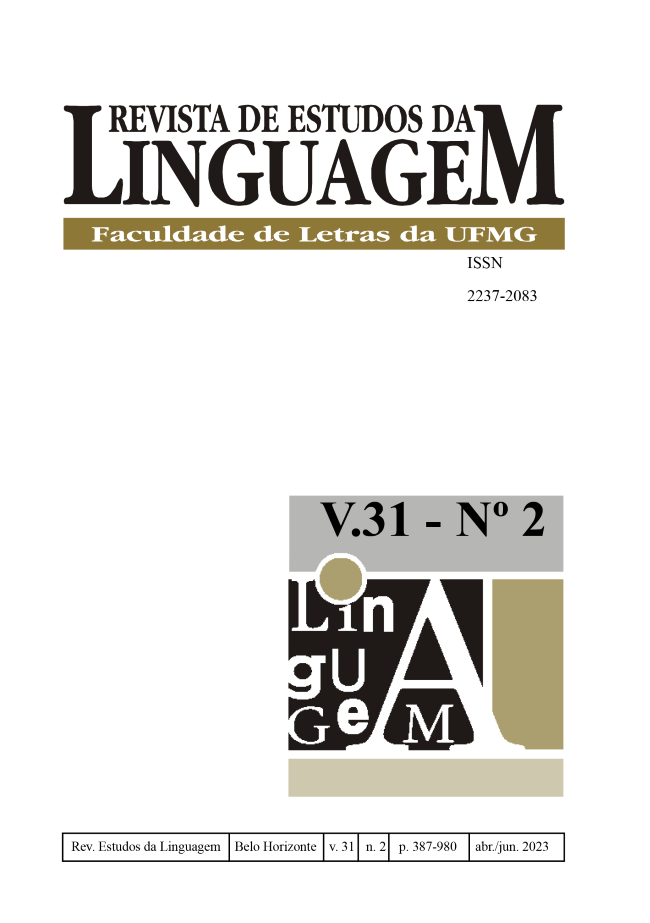Perception/Processing of sociolinguistic variation
consideration on contributions and challenges of experimental research
DOI:
https://doi.org/10.17851/2237-2083.31.2.432-467Keywords:
linguistic variation, processing, perception, cognition, SociolinguisticsAbstract
This article has the following goals: a) to reflect on the contributions of the sociolinguistic research that has been developed on the perception/processing of linguistic variation based on experimental data, focusing specifically on the results of studies directed to the cognitive organization of variation in the linguistic knowledge of adults and children, to the effect, on the perception, of constraints verified in production data, and results of studies focused on the effect of the process of change in progress in the perception of the variation by the speech community as well; b) to reflect on the results of studies that, in principle, did not replicate linguistic and social constraints observed in studies with production data and that serve as a basis for the discussion about the challenges of experimental research on variation. Our considerations are based on a set of studies delimited for the purposes of this article, to situate this field of Sociolinguistic studies that has been expanded in this century. We take as a starting point the theoretical premise of Sociolinguistics that variation is inherent to internalized linguistic knowledge. We argue that the study of the processing of variation needs to consider, in its experimental protocols, the hypothesis of the joint action of linguistic, social and cognitive factors, as in Young & Bayley’s (1996, p. 253-254) “principle of multiple causes”, resumed in Bayley (2002, p. 118-120), a challenge for the experimental research, which needs to isolate and control different types of factors that co-occur and compete in the grammar of the individual and the speech community in different interactional context, whether considering the speaker’s or the listener’s point of view.




 Esta obra está licenciada com uma Licença
Esta obra está licenciada com uma Licença 